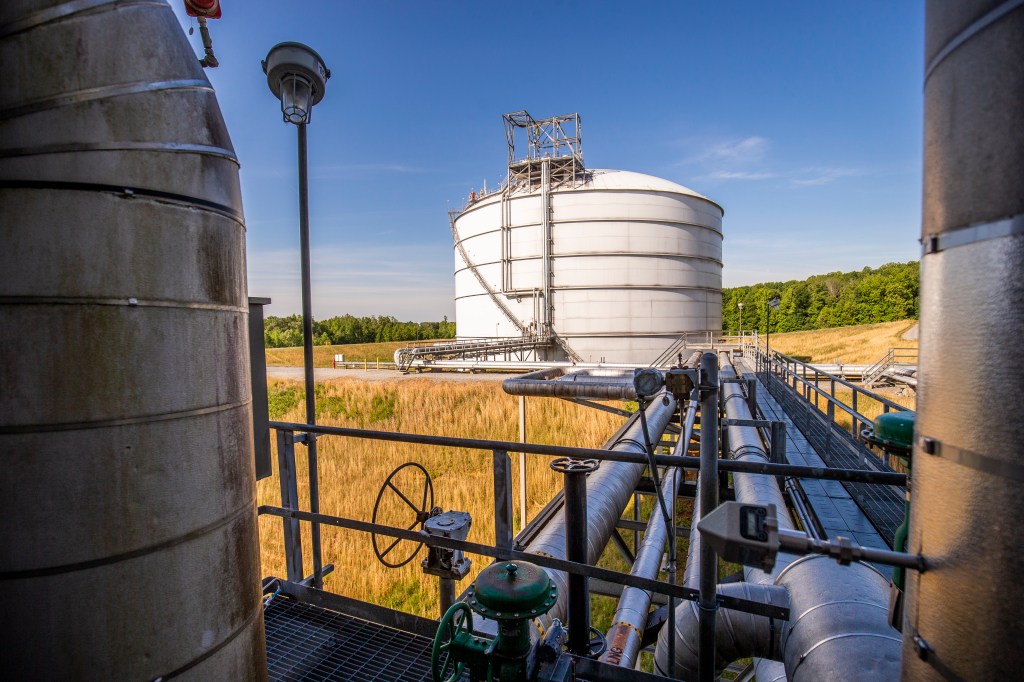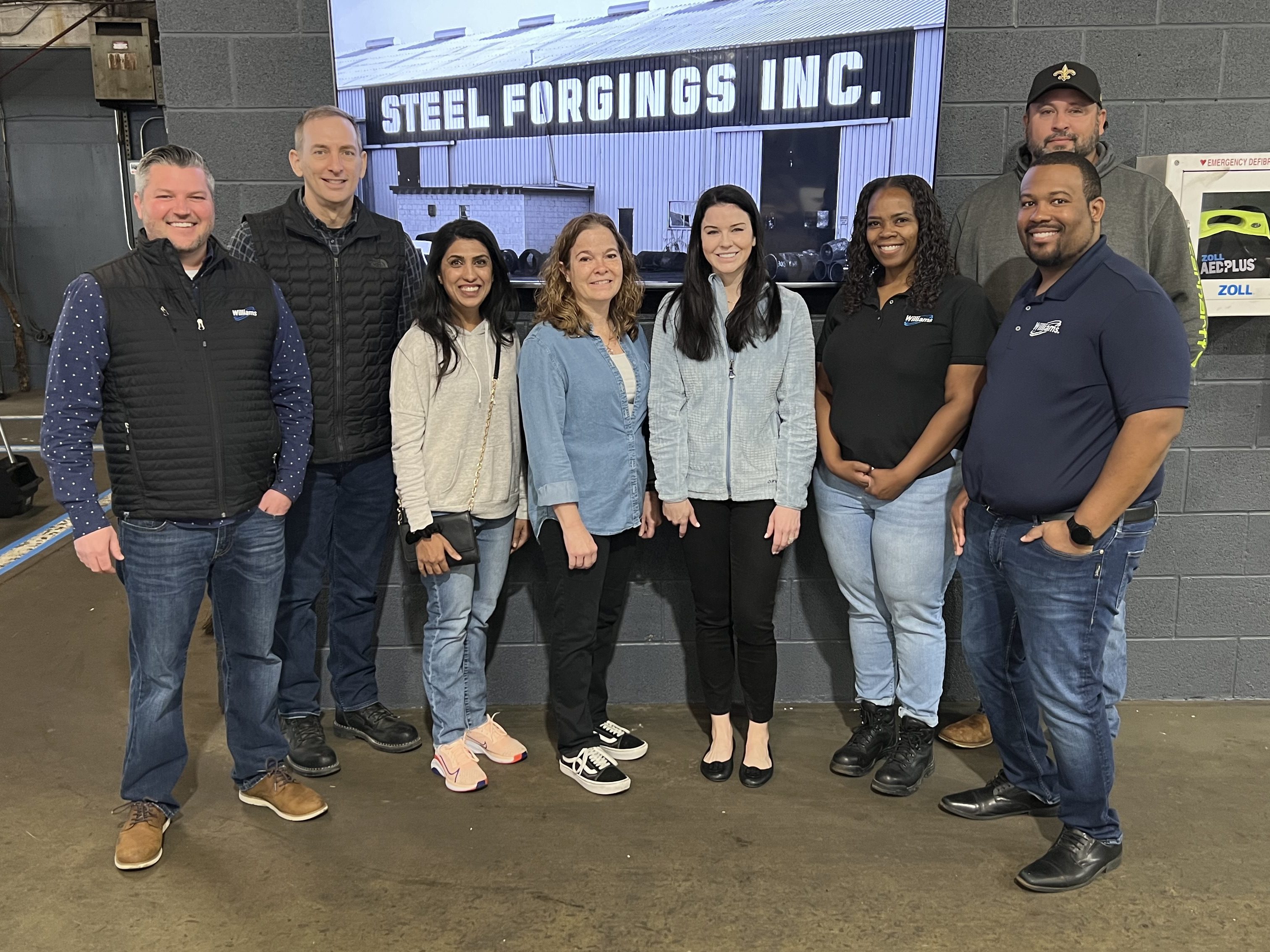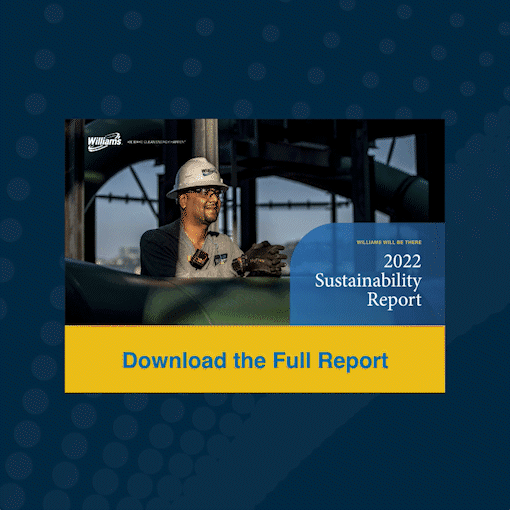Williams’ interstate gas pipeline and gathering and processing operations span across the U.S., supplying natural gas and natural gas products nationwide. Our daily operations use materials, goods and services from more than 3,979 suppliers across the country. We value building relationships with suppliers that uphold our commitment to operational excellence, honor our Core Values and support our vision for sustainability. Williams strives to continue to mature our procurement and supply chain management strategy to build a more resilient, diverse and sustainable supplier base.
WILLIAMS WILL BE THERE
Investing in Innovation
In addition to driving positive economic impact through our operations and expansion activities, we fuel local economic growth through community investment and innovative industry partnerships. In 2022, Williams, Devon Energy, ONEOK, venture capital firm Energy Innovation Capital (EIC) and tech-focused nonprofit Tulsa Innovation Labs (TIL) joined together in a first-of-its-kind initiative to attract energy technology startups to the Tulsa region.
A key program in this initiative is Rose Rock Bridge, a startup incubator program that gives burgeoning energy technology organizations the tools they need to succeed and grow in the Tulsa area. Startups accepted to the program are awarded $100,000 in non-dilutive funding to experiment and grow their ideas. Williams also participates in mentorships, networking events, pitch days and administrative support activities.
For Williams, one advantage of this program is the opportunity to collaborate with startups to develop energy technology solutions in line with our decarbonization goals. Additionally, this program will support Tulsa’s entrepreneurs and bring talented innovators to the area, ultimately enhancing the city’s energy technology economy.
Supply Chain Management
Our suppliers and contractors are essential to helping us deliver safe, reliable natural gas products that help fuel the clean energy economy. Williams uses a tiered supplier relationship management process to segment suppliers into categories and help direct our spending. We determine our Tier 1 suppliers based upon the highest spend, strategic value and potential risks. On average, Tier 1 suppliers account for the top 80% of total annual spend. Williams implements well-researched category strategies to drive procurement decisions on major projects and high-spend categories.
We value authenticity and integrity throughout our business, which includes work done in partnership with our suppliers and contractors. Our Code of Conduct for Suppliers and Contractors sets expectations for our business partners to uphold our commitment to environmental, social and economic impact and maintain our compliance with all applicable laws and regulations. The Code covers ESG standards including the prohibition of discrimination, support for freedom of association and collective bargaining and promotion of effective environmental management. We require acknowledgment of our Code from all our suppliers and contractors when signing procurement contracts and new purchase orders. Additionally, we conduct training with our procurement team to best execute the Code and our supplier ESG program. Our Code is available on our external vendor terms and conditions website.
Williams’ supplier assessment program requires new suppliers and existing suppliers under re-evaluation to complete a self-assessment ESG questionnaire. The questionnaire assesses social and environmental criteria, such as diversity, human rights policies, environmental performance and code of conduct for business partners. This approach allows Williams to conduct business with suppliers that align with Williams’ ESG expectations, specifically policies focused on environmental sustainability, diversity, pay equality, workplace harassment and data privacy. In 2022, 270 suppliers, including all new suppliers, responded to questions covering ESG criteria. We continue to work with our suppliers to help them improve and align with our ESG expectations and plan to use this supplier response data to further understand Williams’ supplier base.
Williams holds suppliers to high standards on both product quality and services. Williams expects Tier 1 and other critical suppliers to comply with our company policies, performance expectations and regulatory requirements, which we monitor through desktop and onsite assessments conducted by members of our procurement team. Suppliers that do not meet our expectations may be subject to contractual remedies, up to and including termination of contract and removal from active supplier list. For our critical suppliers, we establish performance metrics regarding safety, on-time delivery, quality service and cost efficiency. We conduct business reviews with internal stakeholders throughout the year to verify that suppliers are hitting their performance goals. To identify potential country-specific supply chain risks, including human rights risks, we screen suppliers using U.S. Secretary of State databases and the FBI Terrorist Screening Database.
Responsible Procurement
Williams is committed to procuring goods and services from qualified suppliers that meet our safety, compliance and credit requirements. We prioritize working with suppliers committed to advancing our sustainability goals through the inclusion of ESG-based criteria in our supplier evaluation and qualification process. We continue to identify opportunities to standardize and embed ESG criteria into our procurement process.
Our Williams Procurement Policy establishes requirements for purchasing goods and services from suppliers and includes language about our improved purchasing processes and sourcing strategies. We strive to select suppliers that use transparent, objective, timely and cost-effective decision-making and risk management. We continue to work with local suppliers – defined as being in the same state or region as our field offices or large stations – to promote economic development in our areas of operation. Our ability to hire locally depends on the availability of appropriately qualified individuals. For additional information on local economic development, see Economic Impacts.

Williams’ dedication to diversity goes beyond our commitment to an inclusive workplace for employees. Williams has strengthened our efforts to support diverse suppliers and suppliers from historically underrepresented groups. In 2022, we implemented a supplier diversity program. The program’s vision statement reflects input and signoff by our Diversity and Inclusion Council, of which executive leaders are members.
Through this program, we have partnered with Tealbook, a third-party supplier data provider, to help us understand metrics and track the diversity classifications of our current supplier base and future suppliers. These business classifications include small businesses and companies owned by women, minorities, military veterans and businesses in the Historically Underutilized Business Zones program. The Historically Underutilized Business Zones program helps small businesses in urban and rural communities gain preferential access to federal procurement opportunities. Currently, about 15% of Williams suppliers are diverse and certified as such.
As an example of our efforts to promote diversity in our supply chain, Williams has partnered with the Tulsa Chamber of Commerce’s Mosaic, a coalition of local organizations dedicated to enhancing the area’s D&I climate by sharing best practices and developing relationships. Mosaic helps us connect to Tulsa-area businesses owned by people with diverse backgrounds. Our goal for 2023 is to implement “supplier spotlights,” which will highlight a current diverse supplier of Williams to drive both internal and external awareness of supplier’s capabilities.
“Growing investment in supplier diversity is a focus area of the Tulsa Regional Chamber. Having a company like Williams align with us and demonstrate what it looks like to intentionally engage in this effort is a game changer for minority entrepreneurship and economic equity.”
JONATHAN LONG, VICE PRESIDENT OF DIVERSITY, EQUITY AND INCLUSION FOR TULSA REGIONAL CHAMBER
Diversity & Inclusion
Williams embraces pipeline of diverse suppliers
Williams’ dedication to diversity goes beyond our commitment to an inclusive workplace for employees. We also …



